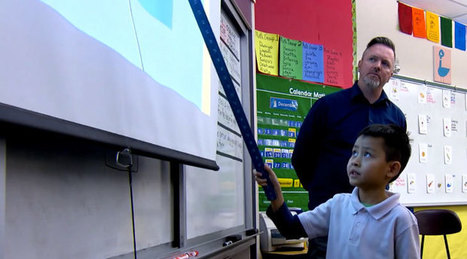Math teachers of older students sometimes struggle to get students to explain their thinking with evidence. It’s hard to get kids in the habit of talking about how they are thinking about a problem when they’ve had many years of instruction that focused on getting the “right answer.” That’s why educators are now trying to get students in the habit of explaining their thinking at a young age. The Teaching Channel captured kindergarten and first grade teachers pushing students to give evidence for their answers in situations where there are several ways to think about a problem.
Via John Evans



 Your new post is loading...
Your new post is loading...









